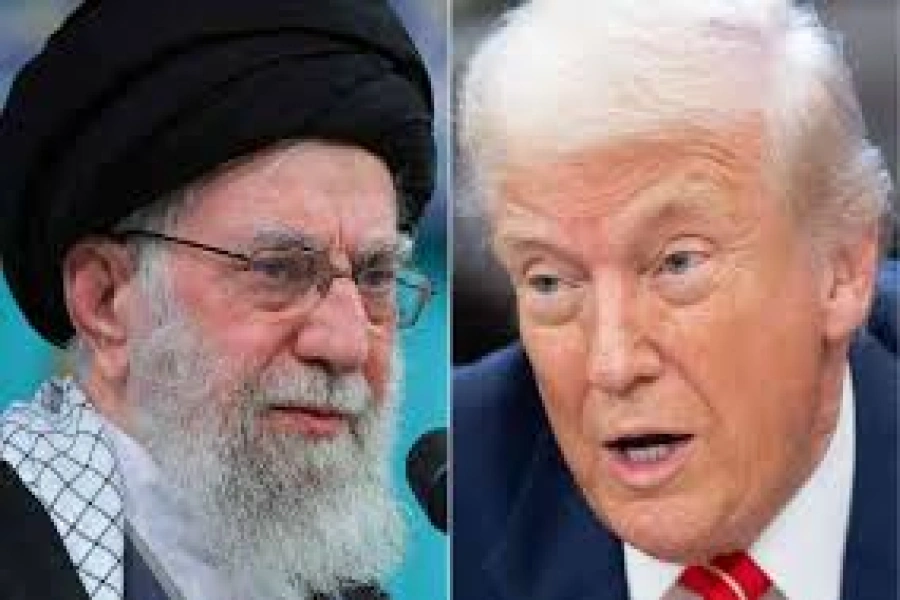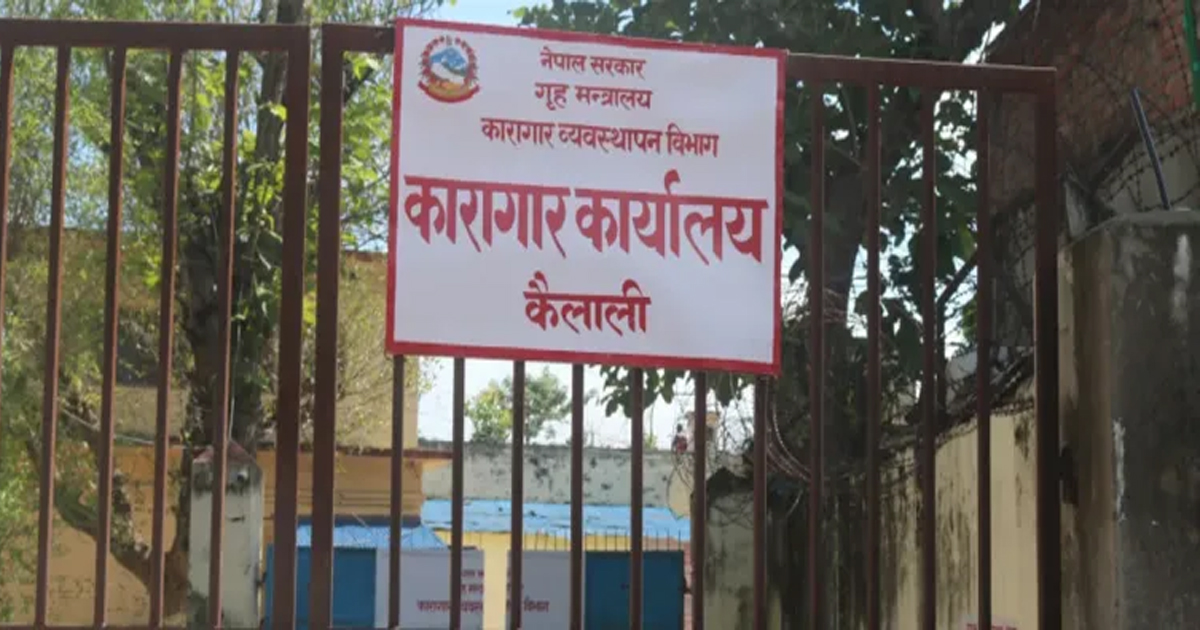In the simmering heat of Bangladesh, where the air hung heavy with the weight of history, a quiet revolution took root, its roots sinking deep into the hearts of a generation too young to remember a time before Sheikh Hasina’s reign. It was the uprising of Generation Z—a fire kindled by disillusionment and fanned by the relentless winds of change, a generation whose patience had worn thin against the iron grip of a leader whose age seemed to stretch back to the mists of time. Four generations stood between the indomitable Sheikh Hasina and the youth who stood against her, their voices rising like a storm surge, threatening to wash away the authoritarian remnants of a regime that had long outstayed its welcome.Any hint of protest is also met a similar fate in Nepal, crushed beneath the heavy hand of authoritarianism, as the old guard clung to power, oblivious to the tides of change rising against them.
Recently, in the ancient streets of Kathmandu, where every corner echo with the whispers of a thousand gods, the clash between past and present played out in vivid hues, each stroke a reminder of the country’s uncertain path. Here, communism hung in the air like the fading scent of incense after a ritual—nostalgic, comforting to some, but increasingly irrelevant to the vibrant pulse of a youth seeking more than the promises of a forgotten age.
It seemed almost absurd, this notion that communism could still hold sway in a land where the young were leaving in droves—3,000 a day. And yet, even those fleeing to India, those uncounted souls in hundreds of thousands, only deepened the shadows of this exodus, painting a picture not just of departure, but of despair. The exodus wasn't merely a movement of bodies; it was the silent scream of a generation abandoning a homeland that had failed to offer them hope, leaving behind a void that echoed with the absence of a future.
An exodus of youth, driven by the quest for better opportunities, painted a somber portrait of a nation once a mighty superpower of the region, a land that had once posed a military threat to the British Empire and the Chinese Empire. Now, it stood as a shadow of its former self, grappling with its identity in an era eager to move beyond the ideologies of the 20th century. The once-grand aspirations of the past seemed to crumble in the face of a new reality, where the relentless tide of change swept away old certainties and left behind a nation searching for its place in a rapidly evolving world.
The Soviets and their Eastern European allies experimented with communism in the 20th Century and put in place the restrictive travel policies designed to keep their populations tethered to the constraints of a failing system. Today’s Nepal, with its vibrant aspirations and disillusioned youth, mirrors the frustrations of those who once yearned for freedom behind the Iron Curtain. The only difference is that Nepali people are able to leave the country to send remittances, which, according to the Asian Development Bank, increased by 12.1% in FY2023 to $9.3 billion, accounting for 22.7% of the GDP. What is even more worrisome is the fact that the government is preparing to implement a non-collateral loan system to encourage labor migration, instead of working to create employment opportunities within the country.
Nepal’s political paradox

This backdrop of migration and disillusionment starkly contrasts with the global shift witnessed in the 1990s, when the fall of nearly 90% of communist regimes around the world seemed to herald the rise of democratic capitalism. The promise was of a world unburdened by the dogmas of old, where markets could thrive and individual freedoms could flourish. Yet, in Nepal, the situation is quite the opposite. Communism emerged as a reaction to the crony capitalism and neoliberal economic policies championed by the Nepali Congress after the democratic uprising of the 1990. Since then, significant social changes have unfolded. Despite the progressive reforms and ultra-radical shifts in the post-Maoist era, these parties cling to a disintegrating past with a fervor that feels both anachronistic and tragic. They have imposed bans on contemporary innovations—cryptocurrency and TikTok, symbols of a world moving at the speed of digital light—revealing an ideological rigidity that stifles rather than stimulates progress.
The timely initiatives that should have been spearheaded by the government was recently organized by the US Embassy of Nepal. The two-day Creator’s Mela, an initiative designed to refine and develop the skills of Nepali digital creators and influencers. The event, aptly themed ‘Build, Brand, and Boost,’ aimed to help participants launch and grow their online presence and businesses. Yet, the irony cannot be ignored: TikTok, a pivotal platform for many of these creators, remains banned in Nepal. This contradiction not only highlights the stark divide between progressive global trends and the regressive local policy landscape but also underscores the broader issue of ideological rigidity and irrelevance of communism and neo-liberalism, which are stifling potential in a nation striving to thrive in the digital age.
The recent clash between Kathmandu Mayor Balen Shah and the Chief of Ward 22 in New Road is an example of this tension. Local governance in New Road is marked by a rigid insistence on control that hampers progress and overlooks the broader needs of the business community, shoppers, and tourists. The Ward Chief’s inflexibility in enforcing conformity clashes with the Mayor’s broader vision—a vision that seeks to rejuvenate historically significant areas like Basantapur and Freak Street, transforming them into bustling hubs of tourism and economic vitality. This disconnect between the local government’s obstructive mindset and the Mayor’s expansive dreams reveals a profound misalignment between outdated governance and the needs of a dynamic, evolving capital city.
At the core of this developmental struggle lies a profound and palpable clash between entrenched traditional ideologies and the emerging posthumanist perspectives of the 21st century. Karl Marx's scathing critique of capitalism envisioned a path to human liberation, one that promised creativity and social solidarity.Yet, as the rigid tenets of Nepali communism collide with the realities of modern urban life, they appear increasingly out of touch. Marx’s concept of "species-being"—the belief that human fulfillment arises from meaningful, creative work and active participation in a supportive society—appears as a distant ideal rather than a practical reality.
The concept of alienation, central to Marx’s critique, resonates in today’s socio-political landscape. Marx argued that under capitalism, workers are alienated from their labor, creativity, and each other, becoming mere cogs in a production machine. This alienation is not just theoretical but a lived reality for many, manifesting in frustration and disillusionment, particularly among laborers in the Gulf States, where harsh conditions and exploitation exacerbate their sense of disconnect.
In contrast, the Nepali Congress has championed neoliberal economic policies, focusing on market-driven growth and profit. These principles were heavily influenced by Milton Friedman, a prominent American economist who played a key role in shaping neoliberal thought through his work on monetarism, the role of government in the economy, and his staunch advocacy for free markets. Neoliberalism prioritizes economic efficiency, often at the expense of ethical considerations, leading to a fundamental ideological divide. While neoliberalism upholds individualism and market-driven values, posthumanism advocates for a more holistic and egalitarian approach, seeking solutions that address the complex challenges of the 21st century in a way that benefits all, not just the few.
Both communism and neoliberalism stand in stark opposition to posthumanism, which ushers in a profoundly different ethical paradigm. While communism clings to its outdated hierarchies and neoliberalism prioritizes market-driven individualism, posthumanism offers a vision of deep interdependence and mutual respect. This perspective transcends the narrow focus of traditional humanism, advocating for a coexistence that embraces all forms of life and acknowledges their interconnectedness.
Posthumanism also challenges the role of technology in shaping identities and societal structures, proposing a radical rethinking of how we organize our social and ethical frameworks. It moves away from the rigid hierarchies and empty rhetoric of communism and the profit-driven ethos of neoliberalism, advocating instead for a more inclusive and equitable approach to navigating contemporary complexities.
As Nepal grapples with its ideological heritage, the contrast between entrenched doctrines and the emerging posthumanist perspective highlights a broader narrative of transition and transformation. The ideological conflicts in Kathmandu mirror a global struggle to reconcile outdated frameworks with the demands of a rapidly evolving world. In this landscape, posthumanism shines as a beacon of hope, offering a nuanced and inclusive vision for our place in an interconnected future.
The tension highlights the urgent need for new ways of thinking and acting in an interconnected and rapidly changing world. As Nepal confronts the challenges of the 21st century, from climate change, unemployment, to overpopulation, posthumanism provides a framework that acknowledges the complexity and interconnectedness of all life forms. It calls for a reimagining of our social, political, and ethical relationships, offering a vision of coexistence that values all forms of life and embraces the potential for a more equitable and sustainable future.
In the grand theatre of ideology, the old and new vie for dominance. As Nepal navigates its tumultuous journey through the 21st century, it faces a profound crossroads, where clinging to antiquated doctrines only serves to stifle its search for relevance in an increasingly interconnected world. Communism and neoliberalism, anchored in their rigid frameworks, falter in their capacity to embrace a vision of justice that extends to artificial intelligences and natural entities—rivers, mountains, and forests. Posthumanism offers a transformative paradigm, advocating for a world where the harm done to all forms of life, human or otherwise, is met with a rigorous moral accountability. This ideological shift represents a daring and hopeful leap toward a more inclusive and adaptive understanding of our place within the vast, intricate web of existence.







































